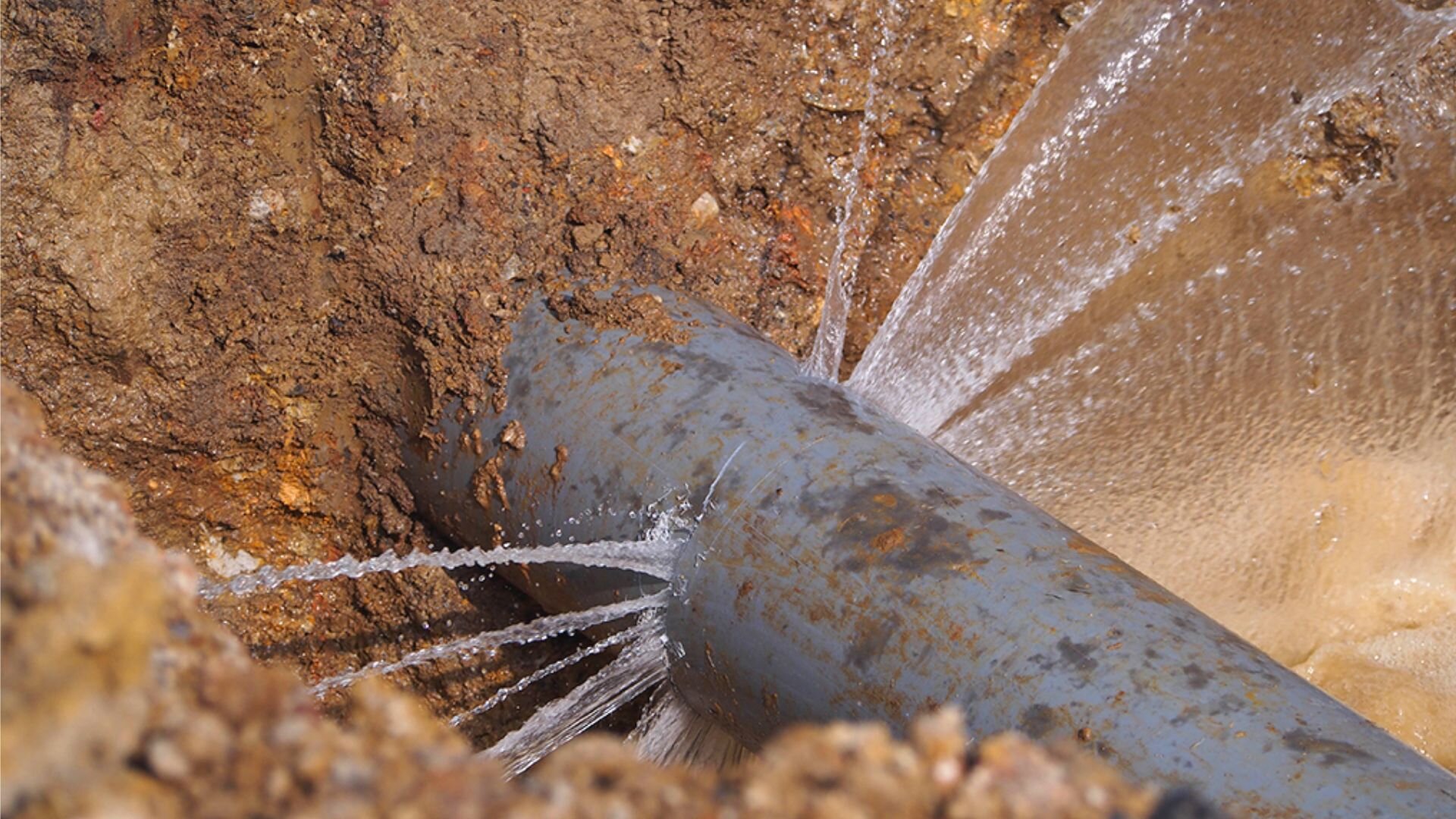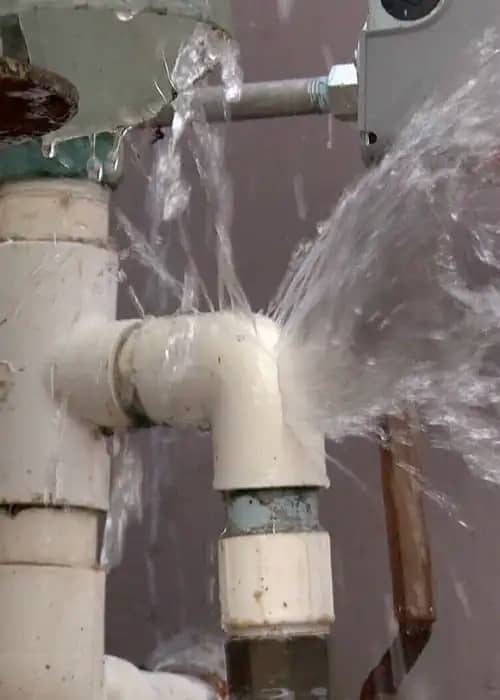The Hidden Dangers of a Burst Pipe and How to Fix It Quickly
The Hidden Dangers of a Burst Pipe and How to Fix It Quickly
Blog Article
Preventing Burst Pipeline: Vital Tips to Secure Your Plumbing
Avoiding ruptured pipelines is an important issue for property owners, particularly throughout chillier months when the risk of cold is increased. Implementing critical procedures such as proper insulation, regular assessments, and preserving regular interior temperatures can dramatically minimize the likelihood of pipeline failing. In addition, recognizing emergency treatments furnishes homeowners to react swiftly to possible plumbing problems. Many are uninformed of the specific vulnerabilities that their pipelines might deal with. Checking out these susceptabilities can supply indispensable understandings into safeguarding your plumbing system successfully.
Understand Pipe Vulnerabilities
Comprehending pipeline vulnerabilities is necessary for reliable pipes upkeep and protecting against pricey damages. Several aspects add to the sensitivity of pipelines to ruptureds, consisting of material structure, age, and environmental conditions. Older pipelines, specifically those made from galvanized steel or polybutylene, typically weaken over time, resulting in enhanced risk of ruptures and leakages.
Temperature level fluctuations can also significantly impact pipeline stability. In colder environments, water caught in pipes can ice up, broadening and putting in pressure on the pipe walls, which may inevitably bring about a burst. High water stress can stress pipes, particularly at joints and bends, enhancing the possibility of failing.

Insulate Pipes Appropriately
Correct insulation of pipes is vital for preventing cold and subsequent bursts throughout winter (burst pipe). Shielding your plumbing system successfully safeguards against temperature drops that can lead to costly damage. Begin by determining vulnerable areas where pipes are exposed to exterior temperatures, such as basements, attic rooms, and exterior walls
Use foam pipe insulation sleeves or wrap insulation tape around these locations to give a safety obstacle. Ensure that all areas of the pipelines, specifically those with limited warm exposure, get adequate insulation. Pay unique attention to joints and installations, as these are a lot more prone to cold.
When insulating, it's vital to pick products that fulfill local building regulations and are ideal for the specific environment. As an example, fiberglass insulation is typically recommended for its thermal resistance buildings - burst pipe. Additionally, consider making use of heat cords or tape in extreme conditions, which can be connected in to offer additional heat
Consistently examine insulated pipes for any indicators of wear or damages, as compromised insulation can diminish its effectiveness. By taking these aggressive procedures, you significantly decrease the threat of pipeline bursts, guaranteeing a trustworthy plumbing system throughout the cold weather.
Maintain Regular Temperature Level
A secure interior temperature level is essential for avoiding burst pipelines throughout the cold months. When temperature levels decrease, water within pipes can ice up, producing and broadening stress that might ultimately trigger the pipes to ruptured.Utilizing a programmable thermostat can assist handle interior temperatures efficiently, making sure that areas with pipes continue to be cozy even when the house is vacant.
This minor circulation of water can protect against cold by minimizing stress within the pipes. By implementing these techniques, property owners can substantially reduce the threat of pipeline ruptureds and secure their plumbing systems versus the extreme winter aspects.
Regularly Check Plumbing
Routine evaluations of plumbing systems are essential for stopping ruptured pipelines and preserving total home stability. Regular checks allow homeowners to determine potential concerns prior to they escalate right into pricey repair services or major water damages. During these examinations, it is necessary to check out noticeable pipelines for indicators of rust, leakages, or use. Pay special interest to areas susceptible to cold, such as basements, attics, and exterior walls. next
Additionally, checking connections and joints is important, as these points are frequently at risk to leakages. Home owners should also analyze water pressure degrees, as excessive pressure can strain the plumbing system and increase the threat of pipe ruptureds.
Take into consideration organizing professional pipes inspections at the very least when a year, specifically prior to wintertime, to guarantee your system is prepared for colder temperature levels. By being positive in your approach, you can safeguard your home against the costly and disruptive effects of ruptured pipes.
Know Emergency Situation Treatments
Recognizing emergency treatments is important for each homeowner, specifically after conducting normal pipes evaluations. Being planned for a plumbing emergency situation can dramatically alleviate damages and save costs. Initially, find your major water shut-off valve; it is commonly found near the water meter or where the main line enters your home. Acquaint on your own with its operation, as turning off the water supply swiftly can protect against extensive flooding.
Next, keep essential devices handy. A plumbing emergency situation kit should consist of a wrench, bettor, and towels, along with a flashlight and a bucket for tiny leaks. Furthermore, take into consideration having the contact info for a relied on plumbing professional easily available, must the situation intensify beyond your control.
If you spot a leak or ruptured pipeline, quickly shut off the supply of water and notify your plumber. Record the damages with pictures for insurance policy functions. Be conscious of the indications of prospective plumbing concerns, such as uncommon water pressure variations or damp spots on wall surfaces
Ultimately, aggressive understanding and swift activity are essential in managing pipes emergencies, ensuring your home remains secured and reducing prospective damage.

Final Thought
Finally, preventing burst pipelines requires a multifaceted technique that includes understanding pipe vulnerabilities, appropriate insulation, maintaining consistent interior temperatures, routine examinations, and understanding of emergency procedures. By executing these necessary methods, the threat of pipes failings can be considerably minimized, thereby making sure the durability and efficiency of read this the plumbing system. Proactive procedures not only guard versus prospective damages however additionally contribute to general water preservation and the security of residential property.
In chillier environments, water trapped in pipes can ice up, broadening and putting in pressure on the pipe wall surfaces, why not try these out which might eventually lead to a ruptured. When temperatures drop, water within pipelines can ice up, increasing and creating stress that might inevitably trigger the pipes to ruptured. By applying these strategies, house owners can dramatically lower the threat of pipeline ruptureds and secure their pipes systems against the extreme winter season aspects.

Report this page